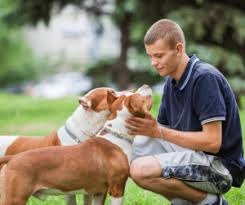Trust is the foundation of every successful relationship, especially when it comes to the connection between dogs and their humans. Building that trust requires more than obedience—it demands patience, mutual understanding, and a shared language of respect. H.K. Dog Training has embraced this principle, helping owners nurture relationships with their dogs beyond commands and routines. They have empowered countless families to find harmony with their canine companions by focusing on trust-centered techniques. We will explore how consistent training, transparent communication, and respect for each dog’s individuality all come together to strengthen this unique bond.
Understanding the Emotional Side of Training
Many dog owners enter training expecting immediate results, but meaningful progress depends on acknowledging the emotional dynamics involved. Dogs are highly intuitive animals who pick up on tone, body language, and emotional shifts from their owners. When dog and puppy training in Fort Myers is based solely on commands or correction, it can create confusion or mistrust. That’s why the foundation of any effective training method should be empathy. H.K. Dog Training emphasizes the emotional intelligence behind every technique, guiding owners to recognize what their dog is feeling in the moment.
Instead of reacting with frustration when a dog doesn’t respond, owners are taught to assess why the behavior occurred and how to respond calmly and constructively. This shift in mindset transforms training from a task into a relationship-building activity. The dog begins to feel secure, understood, and eager to engage, while the owner becomes more attuned and responsive to their companion’s needs. The training becomes a bridge to trust when emotions are acknowledged and respected.
Consistency Creates Confidence
Trust cannot be built overnight. Like people, dogs need consistent behavior to feel safe and secure. Inconsistent commands, random discipline, or sporadic reinforcement can cause confusion and anxiety, making training less effective. The approach used at H.K. Dog Training strongly emphasizes maintaining consistency in daily interactions, so dogs know exactly what to expect. Whether it’s the tone of voice used in commands, the timing of rewards, or the routine of a walk, each element plays a role in shaping behavior and reinforcing trust.
Consistency helps dogs feel confident in their environment because they understand the rules and boundaries that guide them. It also allows owners to build better habits and prevents training from breaking down over time. When dogs know they can rely on their human for structure and fairness, they are more willing to engage, listen, and cooperate. This reliability becomes the backbone of a trusting relationship.
Training That Respects Individual Personalities
No two dogs are exactly alike. Some are independent and driven, while others are cautious and sensitive. Recognizing and working with these personality traits is crucial to fostering trust and achieving meaningful results. Rather than applying a one-size-fits-all method, H.K. Dog Training encourages an adaptive approach that respects each dog’s natural disposition. This means identifying how a dog learns best—through repetition, play, encouragement, or quiet guidance—and tailoring the training strategy accordingly.
For example, a shy rescue dog might need slower-paced sessions and lots of positive reinforcement, while an energetic puppy might respond better to games that reinforce commands through motion. Training becomes a cooperative experience rather than a forced performance by honoring each dog’s individuality. Owners who take the time to understand their dog’s character often find that their bond deepens as mutual respect grows. Trust thrives in personalized attention, where the dog feels seen, valued, and safe.
Empowering Owners as Leaders, Not Enforcers
True leadership in dog training isn’t about control—it’s about guidance and clarity. Dogs naturally look for structure, but that doesn’t mean they respond well to fear-based authority. Dogs respond with trust and willingness when owners lead with confidence, fairness, and calm energy. H.K. Dog Training encourages owners to step into the role of a clear and dependable leader, not an enforcer. This means setting boundaries with kindness, reinforcing good behavior positively, and correcting missteps without anger or intimidation. It’s about showing dogs the way forward rather than punishing them for going off track.
Training sessions are used to model this leadership style so owners can carry it into daily life, reinforcing it in everything from feeding routines to park walks. As dogs learn that their human is a steady presence, they relax into the relationship and become more responsive. Leadership built on understanding rather than dominance nurtures lasting loyalty and respect.
Training rooted in trust goes far beyond teaching commands or correcting behavior—it lays the groundwork for a lifelong partnership. By focusing on emotional awareness, consistency, personalized approaches, and supportive leadership, dog owners can build connections with their pets that are both strong and joyful. H.K. Dog Training helps foster this type of relationship, not by providing quick fixes, but by guiding owners to become more present, understanding, and confident in their role. As trust grows, so does the connection between dog and owner, resulting in a fulfilling and resilient companionship. This kind of training doesn’t just improve behavior; it transforms lives on both ends of the leash.



